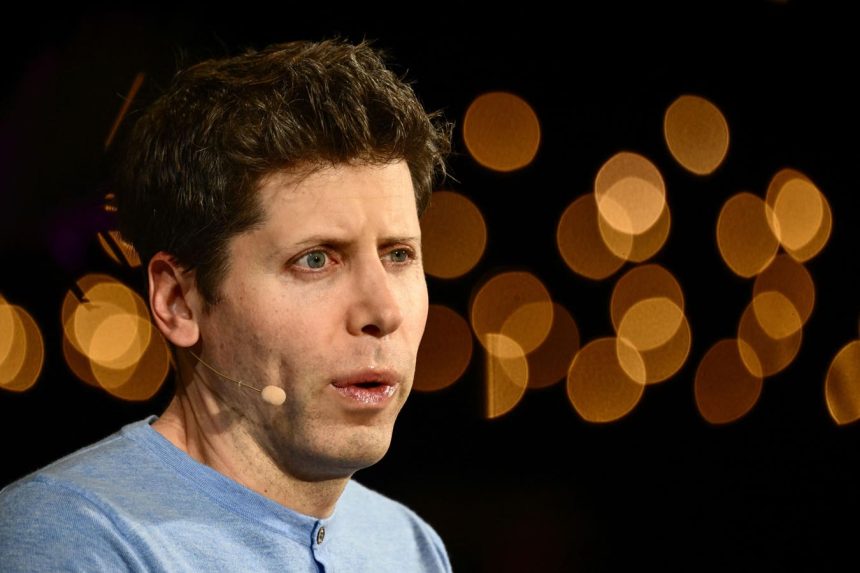Sam Altman, the CEO of OpenAI, the company behind ChatGPT, believes the rapid adoption of AI technologies like ChatGPT is the clearest metric of their impact. He highlights the unprecedented speed at which these tools have integrated into daily life, a phenomenon he’s never witnessed with any other technology. This widespread adoption is driven, in part, by the transformative way people are using AI for information retrieval. Altman himself exemplifies this shift, having replaced traditional search engines with ChatGPT for his daily information needs. This, he suggests, is a common trend, with people increasingly relying on conversational AI to access real-time information from the web, bypassing the now seemingly archaic process of clicking through hyperlinks. While he still refers to this process as “search,” younger generations are more likely to describe it as “chatting up” information, illustrating a generational shift in how we interact with and acquire knowledge.
Altman’s observation regarding the swift integration of AI into our lives underscores a larger point about the pace of technological advancement. He encourages us to look ahead, envisioning the potential landscape of 2026, just 18 months from the time of his interview with Bari Weiss. This prompts the question of how “superintelligence” might emerge and its potential impact. Altman suggests that the answer lies in the rate of scientific progress, pointing to the compounding nature of advancements over the next few years. While the prospect of superintelligence raises concerns, Altman emphasizes the enduring nature of human drives and values. He argues that while AI will undoubtedly reshape the world around us, it won’t alter our fundamental human nature, our desires, aspirations, and core values. This perspective offers a reassuring counterpoint to anxieties surrounding the potential displacement of human agency by artificial intelligence.
Returning to Altman’s “September manifesto,” the theme of human resilience in the face of AI disruption is further elaborated. The manifesto emphasizes the inherent human desire to create and contribute, suggesting that AI, rather than replacing us, will empower us to amplify these innate abilities. Altman envisions a future of expanded possibilities, where society can focus on “positive-sum games,” a concept implying collaborative endeavors that benefit all participants. This optimistic outlook suggests that AI can unlock new avenues for human potential, fostering a more prosperous and collaborative future.
Addressing the prevalent concern of job displacement due to automation, Altman draws a historical parallel. He notes that many jobs we perform today would seem frivolous or even wasteful to people from past centuries. Just as a lamplighter of the past might be awestruck by the advancements of the present, Altman suggests we too would marvel at the unimagined prosperity of a future transformed by AI. This analogy aims to alleviate anxieties surrounding job displacement, suggesting that just as new industries and roles emerged with past technological revolutions, so too will the age of AI create new opportunities and forms of work that we cannot yet fathom.
The core of Altman’s argument revolves around the enduring value of human ingenuity and adaptability. While acknowledging the transformative potential of AI, he firmly believes in humanity’s capacity to adapt and thrive in the face of change. He envisions a future where AI empowers us, expands our horizons, and creates new avenues for prosperity. This optimistic perspective hinges on the belief that human innovation will keep pace with technological advancements, finding new and meaningful ways to contribute to society, even in a world increasingly shaped by artificial intelligence.
This optimistic vision, however, relies heavily on our collective “imagination to develop uses for people,” as Altman puts it. The challenge lies not just in adapting to the changes AI brings but in proactively shaping a future where human potential is not only preserved but amplified. This requires a shift in perspective, from viewing AI as a potential threat to embracing it as a tool for human empowerment. The key, according to Altman, lies in recognizing the enduring value of human creativity, collaboration, and the inherent drive to contribute, and leveraging these qualities to navigate the evolving landscape of an AI-driven world. This calls for a conscious effort to invest in human capital, foster creativity, and promote lifelong learning, ensuring that humans remain active participants and beneficiaries of the technological advancements they create.



